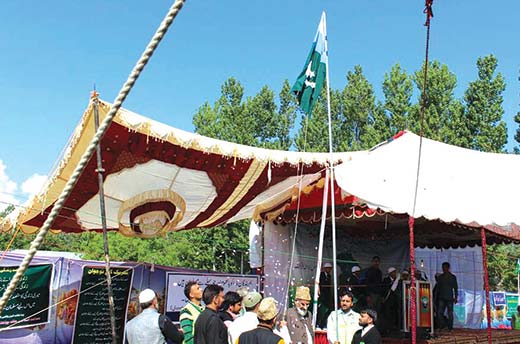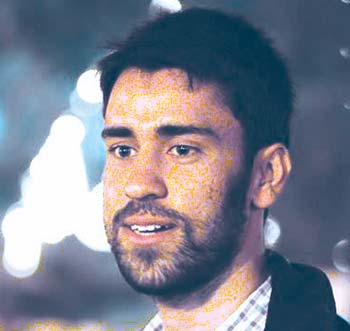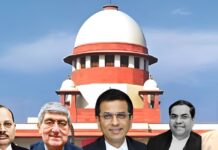Jama’at is neither in a state of decline nor is it facing any existential crisis. Scholar Iymon Majid writes the Islamist party is in a state of a self-correcting mode


Jama’at-e-Islami in J&K needs to be understood in the discourse of ‘political Islam’ (the closest one can define its politics). Political Islam is an ideology that uses a political system while employing modern means and institutions to shape a society according to Islam. It comments on both the public and private spheres of individuals to form a state (Dawla) ruled by laws and the model code of conduct derived from Qur’an, and Sunnah.
Jama’at literature and its ideology as theoreticized by its founder Syed Abul Al’a Maududi is a clear reflection of this point. In J&K, this ideology is at work. In his first open letter to the people Saad ud din Tarabali, Jama’at founder in Kashmir, reiterated categorically that the sole aim of the organization was to create such a system where the sovereignty lies with Allah and Islam as the ‘way of life’ guides mankind to the ‘straight path.’ Party’s constitution explains this character further.
When Jama’at is referred to as a socio-politico-religious organization, this specific categorization limits its role and reach. Theoretically, it is an impediment towards comprehending the comprehensive nature of the organization. The social, political, and religious compartmentalisations are inadequate in their individual definitions and in a collective adjective to characterize Jama’at. These are just slivers in the overall structure of how Islamists work and this largely speaks of their Islamization process which they undertake in order to equip societies to capture power.
It becomes essential to delineate Jama’at from its misplaced, partially analysed identity and start viewing it as a comprehensive Islamist organization. Besides, it becomes equally essential to see how Jama’at has worked towards the main goal of gaining power. Generally capturing state power is perceived as a benchmark of success or failure. But failure is an extremity, to articulate such a view is an academic sham and certain voices would endorse it too. Had capturing state power been a yardstick of accomplishment, then political Islam in general is a failure and in a specific context J&K Jama’at has also failed.
Rashid Ghannouchi, the Tunisian Islamist, writing after Egyptian Army coup that toppled Muslim Brotherhood government argued that setbacks like these are essentially ‘dips in an upward curve’. Persecution of Islamists in the name of terror, he notes, has not demoralized them as Islamists always return in a more nuanced manner than ever.
Jama’at has certainly faced repression particularly during last 26 years. How much Jama’at has learned from these setbacks and what necessary changes they have brought to their organizational structure is a major work that should interest academia.
After losing 10-20 percent of its base to planned state violence, rebuilding of the organization reminds one of the spirits of the mythical phoenix rising from the ashes to live another life. Jama’at is frequently criticized for shunning the separatist movement and focusing on other social activities instead. There are two important things that are absent in this narrative.
Firstly, engaging in social activities is actually part of the Islamization process that is deeply connected to its politics on theoretical level and rooted in a pragmatic application of its programs.
Secondly, the politics of Syed Ali Geelani and his Tehreek-e-Hurriyat (TeH) should not be seen as alien to the Jama’at politics. Forming a party very similar to Jama’at in beliefs and ethos is a ‘blessing in disguise’ for the party. It delinks them from the pressures put on it by the State and TeH works as a shield. TeH should be seen as an ideological party complimenting Jama’at and should not be studied separately which would only be possible had TeH shunned Maududian worldview.
Another related aspect is the influence of Hizb-ul-Mujahideen on the separatist movement. Though both organizations, Jama’at and HM, officially deny having any links but it is only Islamists, clearly motivated by Jama’at ideology, who over the years have militarily engaged India. Even the next generation of militants in Tral have Islamist tendencies rather than nationalistic.
One of the most significant features of Jama’at is its cadre base. Some critic’s feel that Jama’at should have been a mass based party. But that requires charismatic leaders. If an organization does not find charismatic leaders from time to time, it develops tendencies towards dynastic rule, a characteristic of South Asian politics. Cadre based politics induces discipline and a democratic nature which is why Jama’at, though formed by Pirs, the dominant social group of Kashmir, have defied their traditional role unlike every other organization. Defying dominancy of a group exhibits the true egalitarian character of Islam.
Jama’at-e-Islami is undergoing an election process to elect its new leadership. As the members would be voting one hopes they elect a leader who calls for a Muslim assertion and reassertion and unites them to challenge any dominancy. Jama’at is not in a state of decline nor is it facing any existential crisis but it is in a state of a self-correcting mode putting in the very remnants of its ideology, politics, and more importantly, modus operandi in order. Jama’at should embrace the challenges that this society is throwing up at them and march forward.
(Author is a PhD student at Jamia Millia Islami, New Delhi and his research focus is on Jama’at-e-Islami of J&K)
















Author’s assertions are unbaised & genuine & this is what is expected from a sincere well wisher & symapthisizer.Hope your pen does not stop there & continues to encourage the confused brethren over here!